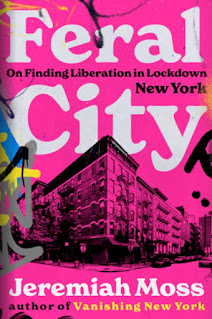Central to the political mythology of Michael Bloomberg is his supposed rejection of ideology. The Bloomberg administration, we are told, represents a new and pragmatic approach to urban governance, one that transcends the old ideological nostrums of both the left and the right. In a partial sense, this is true--the Bloomberg Way can't be neatly slotted into the typical categories of liberal and conservative.
Nevertheless, the Bloomberg Way is far from a moderate, pragmatic approach to governance. In fact, it is based on a rather radical set of suppositions that have quite far-reaching and transformative impacts, suppositions that are embedded in the Bloomberg Way's corporate roots.

The CEO Mayor
As I demonstrate in Bloomberg's New York, central to the Bloomberg approach to governance are the ideas that Mayor is a CEO, city government is a business, residents are customers, businesses are clients, and the city is a product--a luxury product, to be specific.
Far from being the corporate window-dressing that previous NYC mayors had used to associate themselves with the supposedly efficient and hardheaded private sector, this ideology formed the DNA of the Bloomberg Way. As such, it had profound implications for several aspects of urban governance--implications that we have seen play out over the past decade, three of which I'll mention here.
First, the notion that the city government should be run as a corporation had profound implications for the structure and capacity of city government, especially in regard to those agencies responsible for economic and urban development. Corporate-inspired management and marketing techniques--PowerPoints, strategic plans, retreats, the use of "industry desks" (typically used in investment banks and advertising agencies) in economic development agencies, and the use of branding--helped create a coherent organizational apparatus that in turn regenerated the capability of the local government to guide development in a coherent and strategic way. This was crucially important to the development and implementation of the administration's ambitious citywide development agenda.
Finally, the idea of the CEO Mayor has led to the (attempted, at least) curtailment of the space for democratic decision-making. Businesses are not democracies, and CEOs have the prerogative to act in accordance with their judgements of what will achieve "results"; in turn, they are accountable for those results. When imported into City Hall, this model clashed with norms of democratic decision making, especially those concerning process and citizen input. While the citizenry's judgement of the CEO Mayor could be exercised at electoral "accountability moments," during the time in between, it was an unwelcome incursion on the CEO Mayor's ability to, in Bloomberg's words, be "the ultimate risk taker and decision maker."
Previously:
Bloomberg Way 1
Interview with Julian Brash
Previously:
Bloomberg Way 1
Interview with Julian Brash





2 comments:
Quite sad, too true. The CEO idea also allows for bullying and/or basically bribing organizations for endorsements. If you're familiar with corporate politics, you know how that works.
"Businesses are not democracies" - so true. And I get the sneaking feeling my job as citizen is going to be out-sourced.
Post a Comment